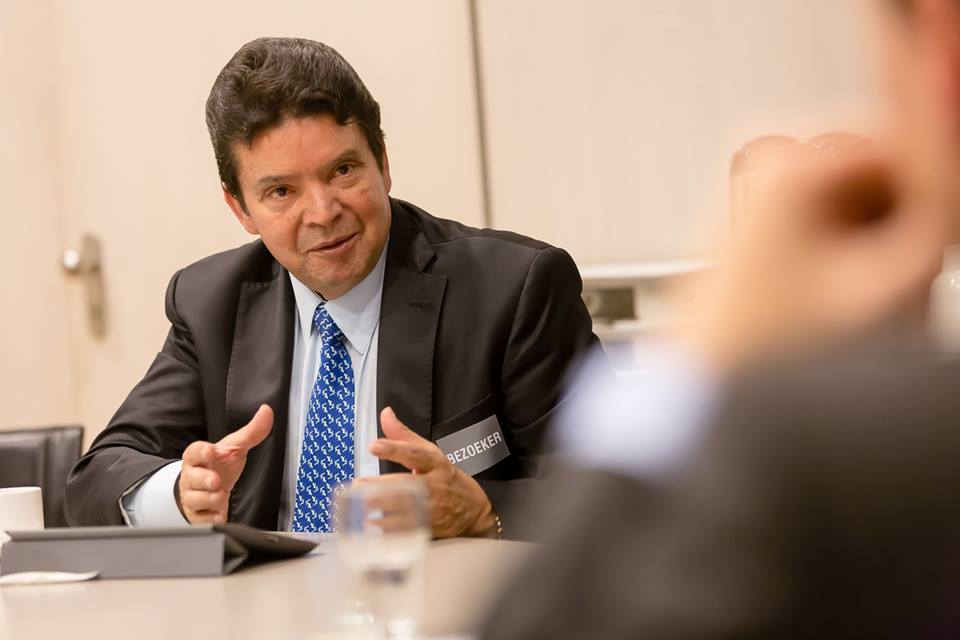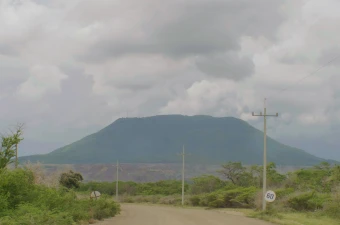
"Colombia would have been prosperous if it wasn't for the armed conflict"
An armed power struggle between guerrillas, paramilitaries, drug gangs and other criminal groups has been raging in Colombia for almost 50 years. Thousands have been killed, and every Colombian knows someone that has been kidnapped or extorted. The result is a destabilised country. But the end of the conflict seems near. The Government and FARC have signed an agreement 23 June 2016. During the peace process President Santos has involved trade union organisation CGT in discussions about the post-conflict era. The final agreement will be officially signed on 26 september. And finally, the Colombian people will be asked to vote in a referendum on 2 October.
We talked to Julio Roberto Gomez Esguerra who is part of the Peace Committee that has been established by the Colombian government to support the peace process on behalf of trade union CGT.
50 years of civil war
A conflict between the army, guerrillas of groups like the FARC and ELN, paramilitaries, drug gangs, and other criminal gangs has been raging in this Latin American country since the 1960s. Initially, the struggle revolved around possession of the natural resources of the country.
Ideals to the background
But these ideals have disappeared into the background; it is now all about power and money. The conflicting parties deal drugs, place landmine throughout the country, blow up electricity poles, attack civilians, and sabotage almost anything imaginable.
"Colombia is in the
top 5 countries with the
biggest disparity between
rich and poor".
Trade Union leader Gomez Esguerra can't stop talking about the thousands of victims of the power struggle. "I am fighting not just to end this, but more importantly: to build peace".
The trade union leader is putting his own life on the line for this. Julio Roberto Gomez Esguerra has not been able to travel the country without security for years. He knows that his name is on the FARC death list. But this does not stop Esguerra from speaking up. Especially now, when peace is in sight.
Peace negotiations between the Colombian government and FARC guerrillas started some years ago in Cuba. The most important partial agreement since the start of the negotiations was concluded in September 2015.
Population votes on peace agreement
It was also agreed upon that the last agreements will have to be concluded by the end of March 2016. This will be followed by a referendum. The population will have to formally agree with the peace accord, after which peace will be definite.
Reconstruction in a country with huge potential
"An entire generation has grown up in Colombia that has never known peace. This while Colombia has huge potential; says the trade union leader.
"if it wasn't for the armed conflict,
we would have been the most prosperous and developed country in Latin America"
He lists the facts rapidly. Colombia is very fertile, rich in oil and coal, and has a favourable geographic location by the Pacific and Atlantic Ocean. Esguerra continues: "Research shows that Colombia can produce 320 million tons of food per year. We only need 35 million tons, but currently we are forced to import 17 million tons. This means we only produce 18 million tons, while we should be able to export almost 300 million tons!"
Afraid to believe in better days
Although the population is desperate for peace, the majority is sceptical about the success of the peace negotiations. "People have suffered so much in the past decades, they simply can't believe better days are coming', says Julio Roberto Gomez Esguerra. "The people don't trust the FARC. Every partial agreement is temporary; the peace accord is only final once the last partial agreement has been concluded, and the referendum has taken place. They are afraid that the FARC will drop out at the last moment."
Other warring parties missing at table
Another fear has to do with the fact that only the FARC is taking part in the negotiations, and not all those other warring parties. What will they do if FARC buries the hatchet? On behalf of the CGT, Julio Roberto Gomez Esguerra raises these subjects with the Peace Committee. For example, in the next meeting he wants to emphasise the need for other conflict parties to join the peace process. "Whether in a mutual discussion, or in individual negotiations, as long as it happens."
Peace and justice in post-accord period
Julio Roberto Gomez Esguerra prefers to use the term post-accord period, instead of post-conflict period. Because there are still some steep hurdles to overcome before we can truly speak of peace, he emphasises. Esguerra mentions justice. "The fighters that have committed all these crimes must be punished, and their victims acknowledged.
This means that the FARC will have to compensate their victims financially. Everyone in Colombia knows that the FARC has many shadowy sources of income, and that millions of dollars have been stacked away in secret places. So financial compensation is definitely possible."
Dialogue with displaced people and farmers about post-conflict period
The trade union leader knows that people listen to him. "In my role, I can create social support. I want to give a voice to the Colombians, so that people are familiar with the needs and concerns of citizens." He wants all sections of the population to have a voice; from the farmers, to the displaced people and the indigenous population. Or, in his own words: "The people that are always ignored." "The main goal is to start the dialogue on the theme of the post-conflict period", says Julio Roberto Gomez Esguerra.
"What's going on in the living environment of these people? How do they see the negotiations, and the fact that they were ignored in the peace process?" The trade union leader does not believe it is too late for that dialogue. "Signing an agreement does not guarantee peace, we will have to start building peace from then onwards. This will be an enormous challenge in a country where the population is this poor and damaged."
Not easily satisfied
Julio Roberto Gomez Esguerra is very proud that his union is taking up this important role. "We go beyond offering training for our members or organising employment conditions." In addition, this trade union leader will not be easily satisfied with the steps taken. After signing the peace accord, we will still have a long way to go. We will have to stay on top of things."
"My dream is to build peace,
along with social justice"
So many people have suffered. We will never forget, but we may be able to forgive." He has faith in the success of the peace accord and the subsequent peace. "There is no way back any more", the trade union leader says decisively.
Publication date 18 12 2015


